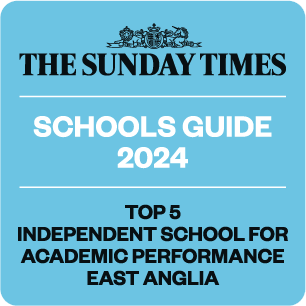Norwich High School for Girls has attained the Norfolk Dyslexia-Friendly Quality Mark for its work in supporting girls across both its Prep and Senior schools.
This award has been issued by Norfolk County Council and is only given to schools that can demonstrate that they provide high quality education and support for students with dyslexia.
“This accreditation reflects the dedication and hard work of our staff, girls and the incredible support of their parents,” said Special Educational Needs and Disability Co-ordinator (SENDCo), Dr Stephen Goymer, who steered the award-winning process which lasted several months.


